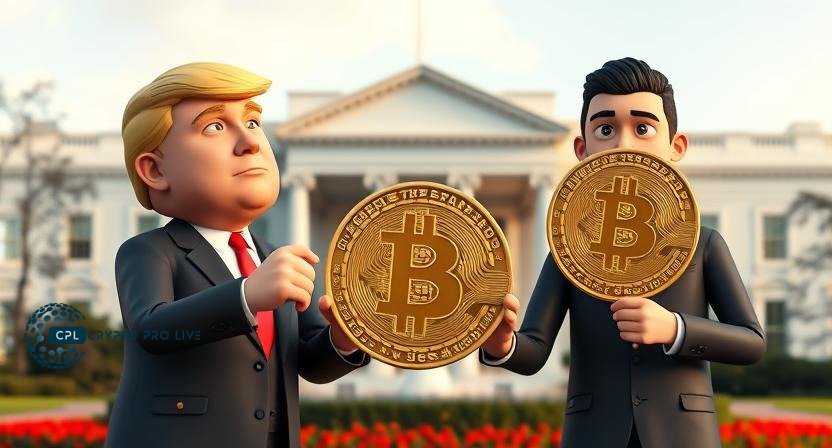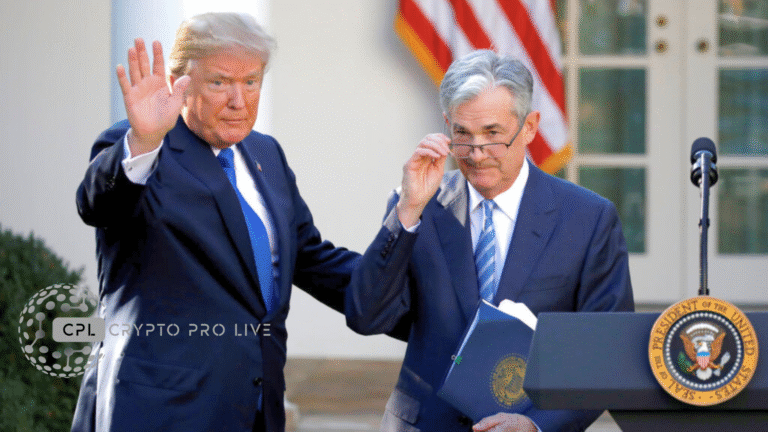In a significant policy shift, President Donald Trump has repositioned cryptocurrency from a marginalized sector to a central component of the United States’ economic strategy. This transformation was underscored by the recent White House Crypto Summit, which industry leaders hailed as a historic milestone for blockchain innovation in the U.S.
The summit, held on March 7, 2025, demonstrated the administration’s commitment to fostering a crypto-friendly environment. President Trump, who had previously expressed skepticism toward digital assets, now emphasizes the importance of integrating cryptocurrencies into the nation’s financial framework. This pivot aims to position the U.S. as a global leader in the blockchain industry, attracting investment and talent worldwide.
One of the summit’s pivotal announcements was the establishment of a Strategic Bitcoin Reserve. This initiative involves utilizing cryptocurrency assets forfeited in criminal cases to bolster the nation’s digital asset holdings, thereby enhancing the credibility and stability of the cryptocurrency market. While the government has not committed to direct market purchases of Bitcoin (BTC), the plan allows for “budget-neutral strategies” to acquire additional assets without burdening taxpayers.
Industry leaders, including Crypto.com CEO Kris Marszalek, have lauded these developments. Marszalek noted that the summit marked a “truly historic day at the White House,” reflecting a reversal of previous policies that had hindered crypto and tech firms’ access to banking services. The Office of the Comptroller of the Currency (OCC) also eased its stance on banks engaging with crypto, signaling a more supportive regulatory environment.
Legislative efforts are also gaining momentum, with two major bills awaiting congressional approval: the Stablecoin Bill and the Market Structure Bill. These proposed laws aim to clarify regulatory guidelines for the crypto industry, reducing uncertainty and encouraging domestic innovation. Ongoing dialogues with key regulators, such as the Commodity Futures Trading Commission (CFTC) and the Securities and Exchange Commission (SEC), could lead to landmark legislation that aligns with the administration’s pro-crypto stance.
However, some critics express concerns over potential conflicts of interest, citing President Trump’s previous involvement with a “meme coin” named “$TRUMP,” supported by the Trump Organization. Additionally, the administration’s plan to establish a national reserve for digital currencies, including Bitcoin, Ethereum, and Solana, has raised questions about the government’s role in the cryptocurrency market.
Despite these concerns, the administration’s actions have been largely welcomed by the crypto community. The shift in policy is seen as a move to integrate cryptocurrencies into mainstream finance, potentially paving the way for broader adoption and innovation. The establishment of the Strategic Bitcoin Reserve, in particular, is viewed as a step toward legitimizing digital assets and incorporating them into the traditional financial system.
In conclusion, President Trump’s recent initiatives have transformed the U.S. cryptocurrency landscape, elevating digital assets from a previously marginalized status to a central element of national economic strategy. As regulatory frameworks evolve and the government continues to engage with industry stakeholders, the U.S. is poised to strengthen its position as a global hub for blockchain technology and cryptocurrency innovation.




















One thought on “Trump Crypto Summit Signals Major Shift in US Bitcoin Policy”